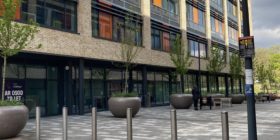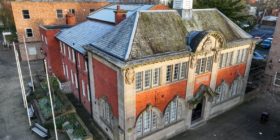How Humans/Children Develop Social Skills: €1.5M ERC Funding To Examine The Cognitive Neuroscience Behind The Development Of A “Social Brain”

Humans are inherently social creatures and our understanding of the world is shaped from the very beginning by the social interactions we observe and engage in. As a consequence, we are truly excellent at extracting information from social scenes. We can quickly discern if two people are cooperating or competing, flirting or fighting, and helping or hindering each other. Most important of all, we swiftly learn a great deal about people from observing their interactions with others – even a brief interaction give us important clues about their personality, their social abilities and their current mood. How does this remarkable skill develop? What are its brain bases? How is this kind of “social interaction perception” related to real-world social ability and social learning across development?
These are questions that Dr. Kami Koldewyn, a neuroscientist based at Bangor University’s leading School of Psychology, hopes to answer, thanks to a Starting Grant from the European Research Council (ERC). She overcame stiff competition to receive this prestigious award for a project entitled “Becoming Social: Social Interaction Perception and the Social Brain Across Typical and Atypical Development”. This is the 2nd ERC starting grant to be awarded to a social neuroscientist at Bangor University in the last two years, and will contribute to further establishing social and cognitive neuroscience as an area of research excellence at Bangor. The €1.5M grant will allow Kami to increase the pace of her research investigating the development and brain basis of complex social perception and social learning.
Kami explains: “From recent work, we know that much of our early learning is ‘social learning’. This means we attend to, process and learn primarily through contact with others. But children are not simply ‘social sponges’, they actually learn better from people they trust than from people they don’t know or who they think are untrustworthy. They can, and do, make these judgements based on the social interactions they observe. To me, this means that to understand social development, we also need to understand how social interactions are perceived and understood.”
She adds, “By the end of the project, we hope to provide the most complete picture to date of the development of the behavioural and neurobiological systems that support complex social perception.”

To achieve this, the Becoming Social project will use cutting-edge neuroimaging techniques as well as eye-tracking and behavioural experiments to bring a novel, integrative and rigorous approach to investigating how humans learn from, process and understand social interactions. Kami and her team plan projects that will include longitudinal brain imaging research investigating development in both typical and autistic populations. Beyond the scientific scope of this work, expected results could have broad-reaching implications for both educational and clinical practice.
The ERC Starting Grant is one of the most prestigious scientific awards in Europe and is extremely competitive. This year, 325 of 2935 applications have been funded, giving a success rate of ~11%. The grant is intended to give talented young scientists the opportunity to build and extend their own research group in order to carry out independent research and pursue ground-breaking ideas.
This year, the UK will host the 2nd highest number of awards, following Germany. Becoming Social is one of 59 ERC starting grants awards in the UK across the physical sciences, life sciences and social sciences and is one of 4 awards granted to a UK-based scientist from the ‘Human Mind and Its Complexity’ research domain.
Spotted something? Got a story? Email News@News.Wales











